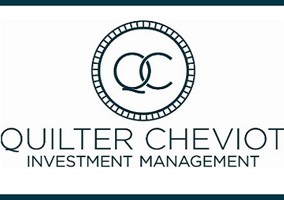What is responsible investment?
Responsible investment is about taking into consideration environmental, social and governance (ESG) factors into investment objectives. Recent generations are becoming a lot more conscious and mindful that their investments are not only protected and can accumulate a return over time, but also positively impact society in general.
Responsible investing can be seen as an umbrella term for numerous approaches that can be adopted into strategies. These approaches include stewardship, ESG screening and ESG integration.
Stewardship involves engaging with companies to discuss ESG issues to improve their handling and disclosure of such issues. This may be carried out individually or with other investors. It includes voting on resolutions, either in person or by proxy.
ESG screening involves applying filters to lists of potential investments. This can be based on an investor’s ESG preferences, values or ethics. It can also be used to screen out sectors based on perceived long-term viability.
ESG integration is the explicit and systematic inclusion of ESG issues in investment analysis and decisions to better manage risks and improve returns. Examples of this approach could be the inclusion of information into a stock selection or valuation decision.
What is important to charities in terms of responsible investing in 2021?
Prior to the Covid-19 pandemic, a lot of the focus within ESG was on the “E” – environment. This was driven by a number of factors, but passionate advocates such as Sir David Attenborough and Greta Thunberg have caught the public’s attention.
From a charity’s perspective, while environmental considerations are equally as important, we are now seeing an increased focus on social and governance factors following how companies responded to the pandemic in 2020. This includes how employees have been treated through their working conditions and how the furlough scheme was utilised for staff.
This can also be viewed from a higher level, such as how dividends and executive pay rises are going to be executed following the company’s response to the pandemic, highlighting where their priorities lie. We would liken this to “what did you do during the war?” – companies’ behaviour is under the microscope.
How will the UK government approach COP26?
In November, we will see the 2021 United Nations Climate Change Conference (COP26) – the 26th edition of the annual conference – coming to Glasgow. Following Prime Minister Boris Johnson’s comment late last year that he wants the UK to be the “Saudi Arabia of wind power”, we think the UK’s response to climate change in the build up to COP26 will be an interesting one.
We are expecting the National Savings & Investments’ (NS&I) green savings bonds launch later this year. These bonds will help finance projects tackling climate change, particularly around renewable energy. Additionally, the UK government has announced its plans to issue its first green gilts this year to also fund sustainable projects, but this is dependent on the state of the market.
The prime minister plans for a green industrial revolution, but actions speak louder than words. Energy production is a clear priority for the UK, with plans to phase out coal-fired power stations entirely by 2025. We have also seen Drax, one of the UK’s largest electricity providers, have to scrap its plans to build Europe’s largest gas-fired electricity plants due to the large volume of pushback. This raises concerns as to why energy providers are still trying to launch these plans, contradicting wider sustainable energy objectives.
What is the future of responsible investment?
There are a lot of long-term targets which need to be met over the coming decades. An exciting development in the UK is that large companies and financial institutions will need to align themselves with the Task Force on Climate-related Financial Disclosures (TCFD). Hopefully companies, as well as investors, will be better able to understand the climate-based risks and opportunities.
The UK has passed a net-zero emissions law, meaning it has to bring greenhouse gas emissions down to zero by 2050. But this is a long way away and the steps that the government puts in place to ensure that this is successful are critical. The target for all coal-fired power plants to be closed by 2025 is one such tangible move that seems to be heading in the right direction. However, meeting these targets will not be easy.
For investors there are two paths, but this is not an either/or option. Investing in companies that are fully aligned to a 2050 vision is one route, but equally simply divesting from companies that have a greater challenge to align to a net-zero future could result in them falling behind and impeding the overall efforts. Therefore, we believe stewardship and engagement will be critical in ensuring companies are on the right track to achieving these goals. It is shareholders’ responsibility to hold companies accountable.
What we do
Quilter Cheviot is a leading investment management company specialising in helping charities and private clients with their investments. The ethos of our business is built on the premise that “the people you meet are the people managing your money”. This is to ensure that the discussion we have with clients and the implementation of the charity’s investment strategy is seamless.
We offer charities a number of different approaches to responsible investment including stewardship, ESG screening and ESG integration. Additionally, we have a strong educational programme which covers a wide range of investment and non-investment topics.
Fast facts*
- Established 1771
- Won more than 20 awards in the last two years
- Gained 5* ratings from Defaqto every year for the past six years
*All figures as at 1 March 2021
Gemma Woodward is executive director and director of responsible investment at Quilter Cheviot Investment Management
Related articles










